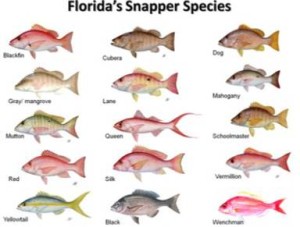
The officer was on land patrol near the Indian Key Channel Bridge when he noticed several people fishing in what was described as an “odd location,” but FWC reports did not specifically state where they were. As the officer was inspecting their catch, he noticed one person catch a fish and put it in the cooler before he reportedly noticed the officer. He then tossed the fish back in the water, reports state. When the officer asked the man how many fish he caught, the man responded that he had kept none.
The officer asked to look in several coolers and buckets, but the man was reluctant to allow him, reports state. When the officer inspected all the coolers and buckets, he reportedly found the fish. The man was taken to the Plantation Key jail. He was released that same day after posting $1,417 bail, according to jail records. He has no prior criminal history in Monroe County.
Don’t become a Wildlife Mobster. Visit these sites to learn about wildlife regulations in the Florida Keys.
http://myfwc.com/media/3058591/Salt_Regs_Quickchart.pdf
http://myfwc.com/media/2692509/Lobster_Brochure.pdf
http://myfwc.com/media/1483467/Lobster_Brochure_Spearfishing.pdf
http://floridakeys.noaa.gov/permits/lionfish.html
Florida Keys National Marine Sanctuary Regulations
With certain exceptions, the following activities are prohibited sanctuary-wide:
- Moving, removing, taking, injuring, touching, breaking, cutting or possessing coral or live rock.
- Removing, injuring, or possessing coral or live rock.
- Discharging or depositing treated or untreated sewage from marine sanitation devices, trash, and other materials.
- Dredging, drilling, prop dredging or otherwise altering the seabed, or placing or abandoning any structure on the seabed.
- Operating a vessel in such a manner as to strike or otherwise injure coral, seagrass, or other immobile organisms attached to the seabed, or cause prop scarring.
- Having a vessel anchored on living coral in water less than 40 feet deep when the bottom can be seen. Anchoring on hardbottom is allowed.
- Except in officially marked channels, operating a vessel at more than 4 knots/no wake within 100 yards of residential shorelines, stationary vessels, or navigational aids marking reefs.
- Operating a vessel at more than 4 knots/no wake within 100 yards of a “divers down” flag.
- Diving or snorkeling without a dive flag.
- Operating a vessel in such a manner which endangers life, limb, marine resources, or property.
- Releasing exotic species.
- Damaging or removing markers, mooring buoys, scientific equipment, boundary buoys, and trap buoys.
- Moving, removing, injuring, or possessing historical resources.
- Taking or possessing protected wildlife.
- Using or possessing explosives or electrical charges.
- Harvesting, possessing or landing any marine life species except as allowed by the Florida Fish and Wildlife Conservation Commission Rule (68B-42 F.A.C.).
